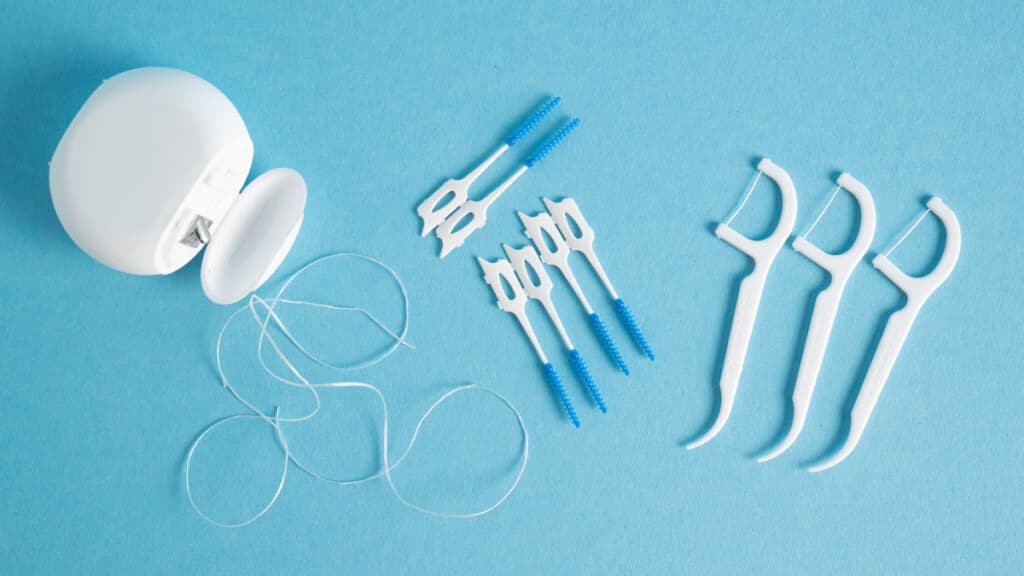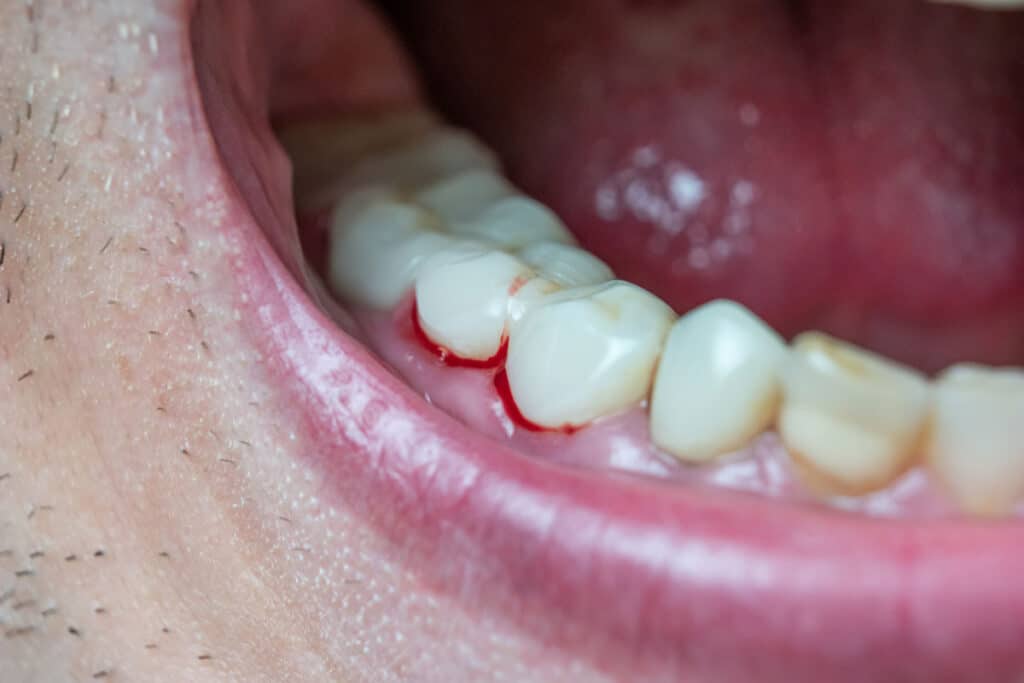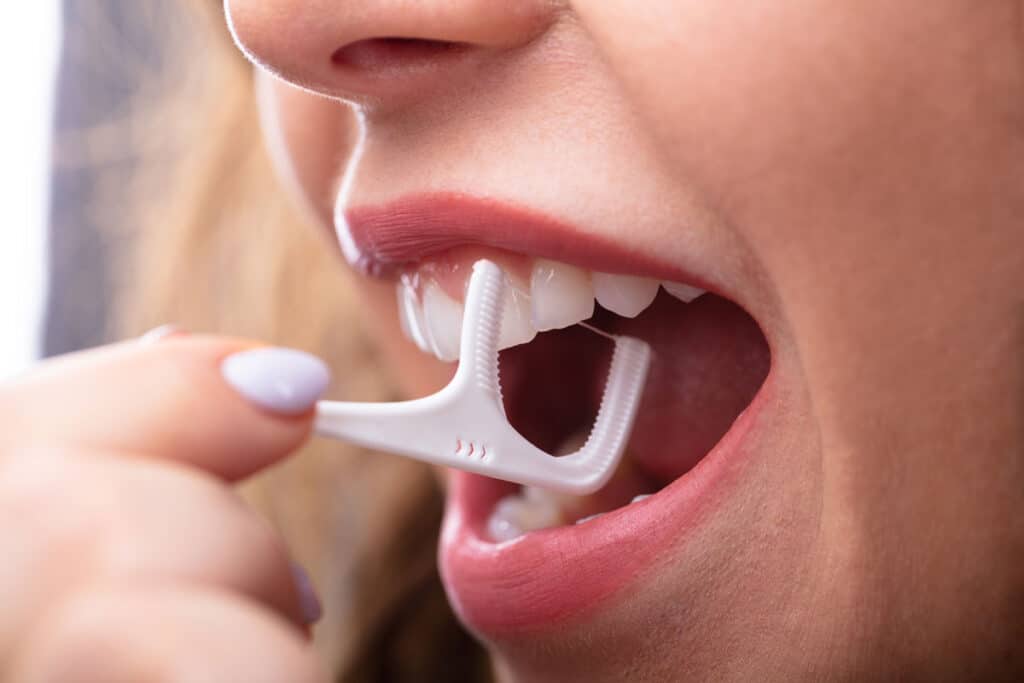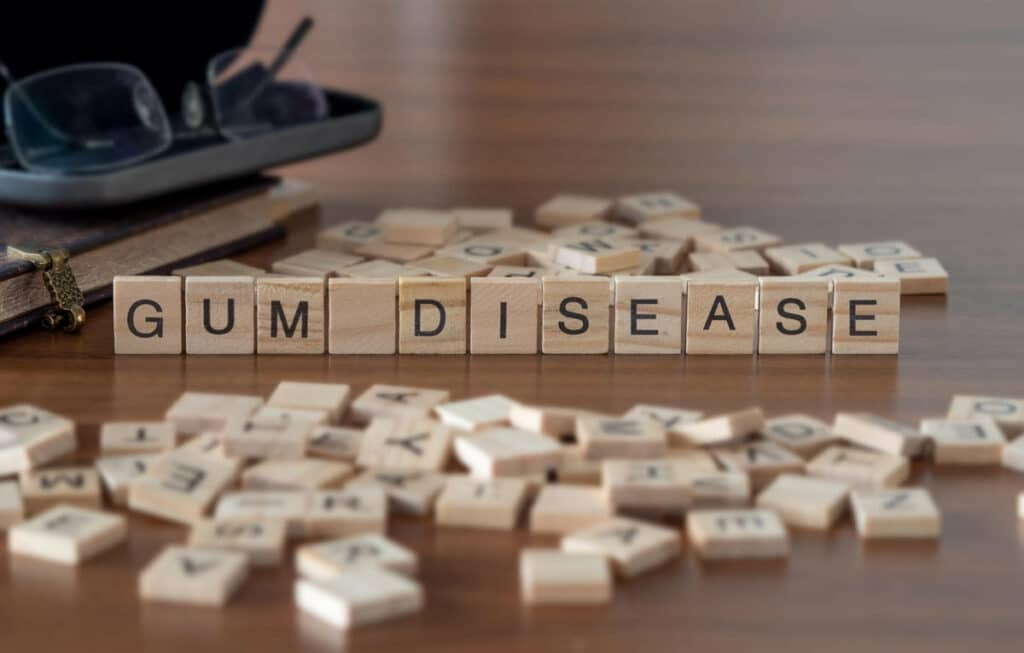The importance of early action to treat gum diseases

Gum diseases are a common issue that affects many people across the UK. However, with early intervention and proper care, you can protect your oral health and prevent severe consequences like tooth loss and gum tissue damage.
Let’s explore why early action is crucial, the symptoms to watch for, and the best ways to maintain healthy gums.

Understanding gum diseases
Gingivitis
Gingivitis is the mildest form of gum disease, characterised by inflammation and irritation of the gums.
It typically causes symptoms like swollen gums, bleeding gums when brushing or flossing, and persistent bad breath or an unpleasant taste in the mouth.
If treated early, gingivitis can be easily managed and will not lead to more severe damage.
Periodontitis
If gingivitis is left untreated, it can progress into periodontitis, a more serious form of gum disease.
In periodontitis, the inflammation of the gums spreads to the deeper tissues, including the bone that supports the teeth.
As the condition worsens, the gums may begin to recede, and pockets of infection can form between the teeth and gums. This can lead to bone loss, a loose tooth, and, in severe cases, tooth loss.
Periodontitis is more challenging to treat than gingivitis. It may demend more intensive treatments, such as scaling and root planing, or even surgical intervention.
Early detection and treatment are crucial to prevent irreversible damage to the gums and teeth.
Common causes of gum disease
The primary cause is plaque, a sticky film of bacteria that builds up on teeth and along the gum line.
Plaque can harden into tartar (also known as calculus) if not removed, making it harder to clean your teeth and increasing the risk of gum disease.
Other risk factors include poor oral hygiene, hormonal changes (such as pregnancy or menopause), diabetes, smoking, and a family history of periodontal disease.
The impact of certain medical conditions on the body can also increase the risk of developing gum disease.
Warning signs and symptoms
Early indicators of gum disease
Warning signs include swollen gums, bleeding during brushing or flossing, and an unpleasant taste in the mouth.
Gums that bleed easily are one of the first symptoms of gum disease. If you notice that your gums bleed while brushing or when using interdental brushes, it’s a clear sign that your gums may not be as healthy as they should be.
Additionally, persistent bad breath or an unpleasant taste in your mouth could indicate the presence of bacteria or plaque build-up that needs to be removed.
Treatment options for gum diseases
Non-surgical treatments: scaling and root planing
Scaling and root planing are common treatments used to remove plaque and tartar beneath the gum line.
These procedures help eliminate bacteria and encourage healthy gum tissue to reattach to the teeth.
Scaling and root planing can often be performed by a dental hygienist during a regular dental check-up, making it a convenient and cost-effective option.
Advanced procedures for severe cases
For advanced periodontal disease, treatments like soft tissue grafts, bone grafting, and x-rays to assess bone loss may be necessary.
Your dentist may recommend surgeries to repair the damage and restore teeth and gums.
In some cases, the use of antibiotic treatments or mouth rinses may be prescribed to combat infection and reduce inflammation.
Benefits of early intervention
Preventing tooth loss and irreversible damage
When caught in the early stages, gum disease can often be reversed.
Professional cleaning to remove plaque and tartar is highly effective in preventing further damage.
If treated early, it is possible to stop the progression of gum disease, protect your bone health, and prevent teeth from becoming loose or falling out.
Cost-effectiveness of addressing gum disease early
Treating gum diseases in the initial stages is far less expensive than dealing with advanced periodontitis, which may require surgeries, dental implants, or other extensive procedures.
Early action often involves routine cleanings, brushing, and flossing, which are far more affordable and effective than the more complex treatments needed for severe gum disease.
Early intervention from your dentist is vital to prevent gum disease from reaching these advanced stages, where more complex procedures are required. Plus, you can save both time and money while ensuring your teeth and gums stay healthy.
The health risks of delayed treatment
Impact on oral health
Ignoring symptoms of gum disease can lead to severe consequences such as tooth loss and permanent damage to the soft tissue and bone.
Puffy gums and receding gums can also make teeth appear longer and more vulnerable to further damage.
In more advanced stages, gum disease can lead to bone loss, causing the teeth to become loose or even fall out.
Left untreated, gum disease can damage the entire gum tissue and surrounding structures, significantly affecting both your appearance and ability to eat or speak.
Links to overall health concerns, such as heart disease
Studies suggest that periodontal disease may increase the risk of systemic conditions like heart disease, diabetes, and respiratory issues.
The bacteria from infected gums can enter the bloodstream, contributing to inflammation throughout the body.
Individuals with diabetes are more prone to developing gum diseases, as their immune systems are compromised.
This connection between oral health and overall health highlights the importance of early intervention to prevent gum disease from affecting more than just your mouth.
Preventing gum disease
The importance of regular dental check-ups
Seeing a dentist regularly ensures early detection of gum disease.
Dental hygienists can perform professional cleaning to remove plaque and tartar that can’t be removed by brushing alone. They will offer tailored advice to help you keep your teeth and gums healthy.
Routine check-ups, plus x-rays to assess bone health and check for early signs of gum disease, are also essential.
Daily habits for maintaining gum health
To prevent gum disease:
- Brush your teeth twice a day with fluoride toothpaste.
- Floss daily to remove plaque between teeth.
- Use interdental brushes to clean hard-to-reach areas.
- Avoid sugary snacks that can lead to plaque build-up.
- Don’t forget to brush your tongue, as bacteria can accumulate there and contribute to bad breath.
Regular dentist check-ups and good habits at home are key to preventing gum diseases and maintaining overall oral health.
Trust Fulham Road Dental with your gum health
Gum diseases are preventable and treatable, especially when addressed early.
By recognising the warning signs, practising good oral hygiene, and seeing a dentist regularly, you can maintain healthy teeth and gums for life.
At Fulham Road Dental, our expert team offers a range of treatments to manage and treat gum disease. Early intervention and tailored care can prevent further damage, ensuring the long-term health of your gums and teeth.
If something doesn’t quite feel right, don’t hesitate to get in touch – we are ready and waiting to help.



